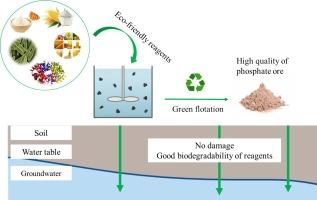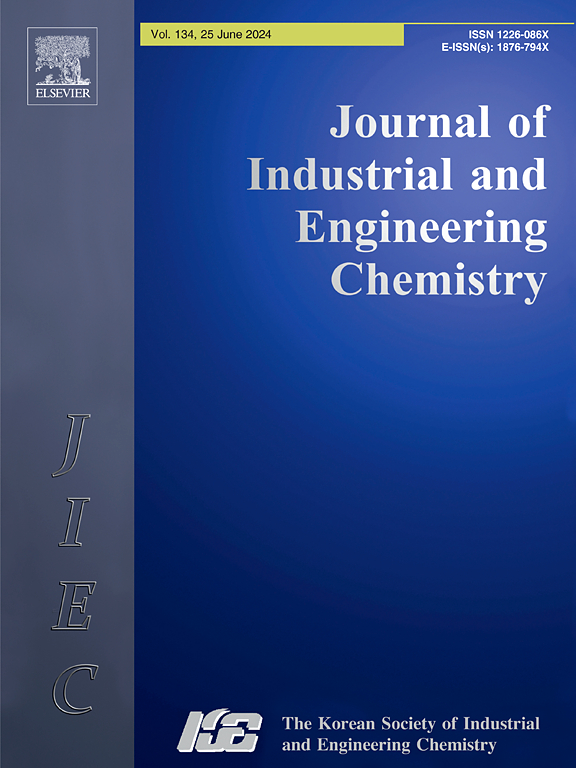Current and sustainable approaches in phosphate ore flotation: A review of eco-friendly reagents and their applications
IF 5.9
3区 工程技术
Q1 CHEMISTRY, MULTIDISCIPLINARY
Journal of Industrial and Engineering Chemistry
Pub Date : 2025-04-19
DOI:10.1016/j.jiec.2025.04.029
引用次数: 0
Abstract
The demand for environmental friendliness is increasing as the industrialized world progresses. Froth flotation is widely used in enrichment processes in the phosphate industry due to its low cost and simplicity of use. However, successful flotation processing requires several reagents, mostly synthetic chemicals commonly used in industry. To safeguard the environment, it is crucial to reconsider these chemicals, as their low degradability can harm water resources and human health. As a result, most researchers have paid attention to the flotation separation of phosphate ore using eco-friendly alternative reagents, including natural polymers, biosurfactants, and green chemicals. This review aims to present a comprehensive overview of the wide availability of eco-friendly reagents currently used in phosphate ore flotation. Additionally, the paper will examine the impact of these reagents on flotation performance, such as recovery rates and selectivity. Through this comprehensive analysis, we attempt to highlight the progress and challenges associated with the adoption of green reagents in the phosphate industry, thereby contributing to the development of more sustainable mineral processing practices.

磷矿浮选的现状和可持续发展途径:生态友好型药剂及其应用综述
随着工业化世界的发展,对环境友好的需求也在增加。泡沫浮选因其成本低、操作简单而广泛应用于磷酸盐工业的富集工艺中。然而,成功的浮选过程需要几种试剂,主要是工业上常用的合成化学品。为了保护环境,重新考虑这些化学物质是至关重要的,因为它们的低降解性会损害水资源和人类健康。因此,利用天然聚合物、生物表面活性剂、绿色化学剂等环保替代试剂进行磷矿浮选分离已成为研究热点。本文综述了目前磷矿浮选中广泛使用的环保试剂的概况。此外,本文将研究这些试剂对浮选性能的影响,如回收率和选择性。通过这一全面的分析,我们试图强调在磷酸盐工业中采用绿色试剂的进展和挑战,从而促进更可持续的矿物加工实践的发展。
本文章由计算机程序翻译,如有差异,请以英文原文为准。
求助全文
约1分钟内获得全文
求助全文
来源期刊
CiteScore
10.40
自引率
6.60%
发文量
639
审稿时长
29 days
期刊介绍:
Journal of Industrial and Engineering Chemistry is published monthly in English by the Korean Society of Industrial and Engineering Chemistry. JIEC brings together multidisciplinary interests in one journal and is to disseminate information on all aspects of research and development in industrial and engineering chemistry. Contributions in the form of research articles, short communications, notes and reviews are considered for publication. The editors welcome original contributions that have not been and are not to be published elsewhere. Instruction to authors and a manuscript submissions form are printed at the end of each issue. Bulk reprints of individual articles can be ordered. This publication is partially supported by Korea Research Foundation and the Korean Federation of Science and Technology Societies.

 求助内容:
求助内容: 应助结果提醒方式:
应助结果提醒方式:


